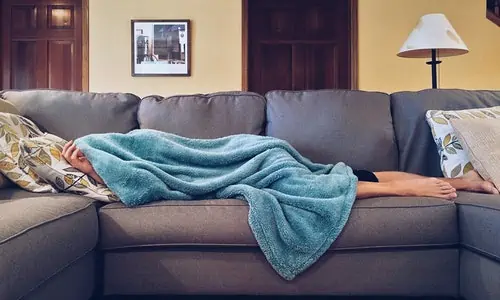
Have you been waking up for years with a sore jaw and you write it off as getting older or simply deal with it? Are there consistent headaches plaguing your mornings, making it difficult to start your day without pain? These issues (and many others) could be caused by bruxism or grinding and clenching your teeth while you sleep. Your dentist in Madison can reassure you that teeth grinding is more common than you might think. While it’s normal to occasionally clench and grind your teeth, chronic sleep bruxism can negatively affect your oral and overall health if left untreated.
Why Do People Grind Their Teeth While Sleeping?
According to the Sleep Foundation, nocturnal teeth grinding still isn’t entirely understood, even with the advanced technology and treatments available in dental and regular medicine today. However, many contributing factors can lead to nighttime grinding that can include:
You’ll want to discuss what medications you’re taking with your dentist in Madison. Certain pills, such as antidepressants, can lead to teeth grinding.
How Does Teeth Grinding Impact My Health?
Forget about the constant disruptions to your sleep cycle that are keeping you from getting the rest you need; bruxism can be bad for your teeth and cause severe pain. When you chronically grind your teeth, it wears down your enamel. When you lose your precious tooth enamel this can result in:
What’s worse, your grinding and clenching can also cause issues with your temporomandibular joint or TMJ joining resulting in pain and loss of functionality.
How to Treat Nighttime Teeth Grinding
Your dentist in Madison will take the first step in helping you find relief from your bruxism by trying to determine the underlying cause of it. Is it stress or anxiety that’s causing your grinding? Is it another condition called sleep apnea contributing to your issue? If you or someone in your family has constant or persistent pain in your mouth, neck, and jaw from grinding, it’s time to talk with us. You’re experiencing this discomfort because you probably don’t even realize you’re grinding your teeth while you’re sleeping. This puts a tremendous amount of pressure on your teeth, with up to 250 pounds of force, leading to headaches and so much more.
Grinding your teeth is not 100 percent curable, but there are ways to:
It’s important to speak with a professional about sleep bruxism and teeth grinding because we can also identify if it’s connected to other conditions like sleep apnea or acid reflux. We’ll find answers to your questions and figure out what solution will be best for you. You might benefit from a custom-fitted nightguard that will help to protect your smile from further damage while you work on a treatment plan.
Are you ready to get help? Contact us today to schedule a consultation so we can address your questions and help you heal.